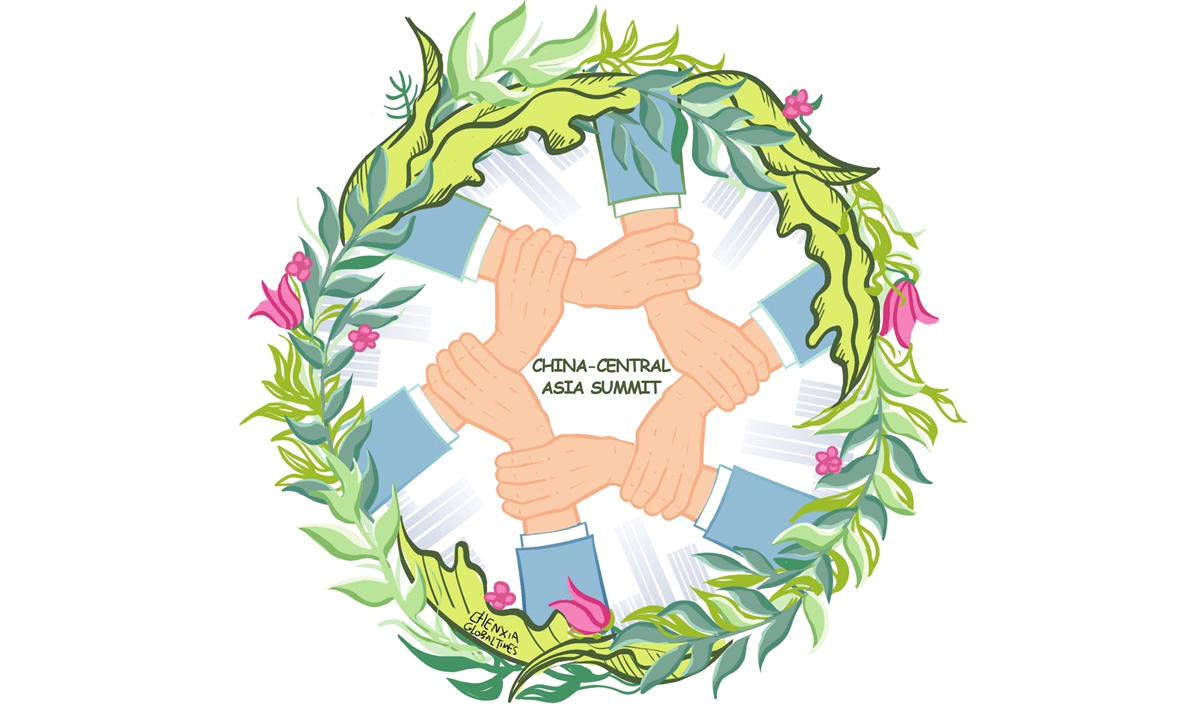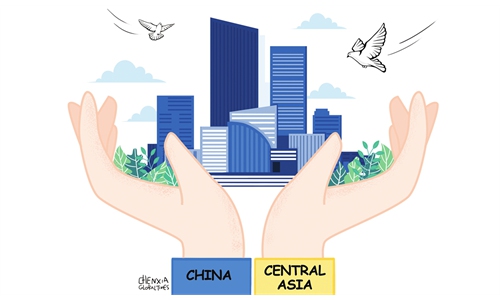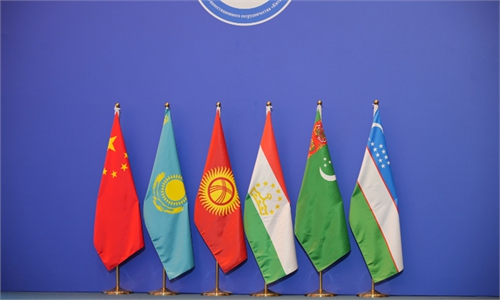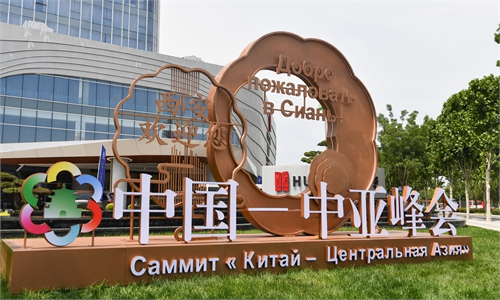
Illustration: Chen Xia/GT
Central Asia has always been an important region for China because of its strategic position, natural resources and geopolitical importance. In recent years, the region has particularly become important given the presence of the Belt and Road Initiative and the participation of Central Asian countries in it.
The war in Ukraine has caused geopolitical and economic upheavals and led to an increase in China's role in Central Asia thanks to diplomatic meetings at the highest level and new initiatives that have made the governments of regional countries trying to balance between China, Russia and the West and willing to stick closer to Beijing in their policy.
China's economic involvement in Central Asia is becoming more systematic and complex every year. China conducts its economic policy in three main directions. One is trade, which is one of the most intensively developing areas of cooperation. China is the largest trading partner of most Central Asian countries. The trade turnover of the five Central Asian countries and China increased by 45.4 percent year-on-year in 2022.
It is also worth mentioning China's investment activities. First of all, this concerns the oil and gas and mining industries. Along with the interest in energy, China also pays attention to such areas as telecommunications and transport infrastructure.
Another priority for China is energy security. In this regard, Kazakhstan and Turkmenistan, rich in energy resources, are of great importance for Beijing, which is seeking to diversify its sources of resources, and the importance of Central Asia as one of the reserves of raw materials is growing. As for oil imports to China, the possibilities of Central Asia are somewhat limited compared to the Middle East.
Beijing is stepping up its bilateral diplomatic relations with Central Asian countries and is seeking to create more formats of interaction with regional governments. It is important to note that China's regional cooperation with Central Asia is based on the principle of non-interference in the internal affairs of other countries.
The scope of the Shanghai Cooperation Organization (SCO) has expanded, and Beijing has set a course to strengthen its leading role in the region by intensifying diplomatic cooperation. As new members have joined the SCO, the topics of interaction also expanded, so China and the Central Asian states needed a new specialized multilateral format of cooperation. Thus, the C+C5 mechanism emerged.
For the first time, the "C5 +" format of cooperation in relation to the countries of the region was used by Japan in 2004 to strengthen relations with the countries of Central Asia and the Caucasus. Now, this format is an international platform for dialogue and cooperation between major states and five Central Asian countries (Kazakhstan, Kyrgyzstan, Tajikistan, Turkmenistan and Uzbekistan). It allows expanding cooperation with and between the Central Asian countries as a single mechanism that promotes consolidation, integration, political stability, economic development, security and cultural exchange. Also, within the framework of this mechanism, the probability of solving various kinds of strategic issues that go beyond the individual states of the region increases.
Traditionally, China has preferred to engage the countries of Central Asia in a bilateral format, but the rapidly changing geopolitical situation in the world requires a comprehensive solution to new threats and challenges of interstate scale and "synchronized watches" to build mutually beneficial relations.
It is expected that the summit of the heads of state of China and Central Asian countries will be important and bring significant results. The main purpose of the summit is to discuss and strengthen cooperation between China and the Central Asian countries, as well as to form a common understanding on the future steps and development of relations, especially in the context of the changing geopolitical situation in the world related to the Ukraine crisis.
In general, it is believed that the platform is a more effective mechanism for the development of relations between China and Central Asia.
The author is the Executive Director of the Eurasian International Studies Association. opinion@globaltimes.com.cn



